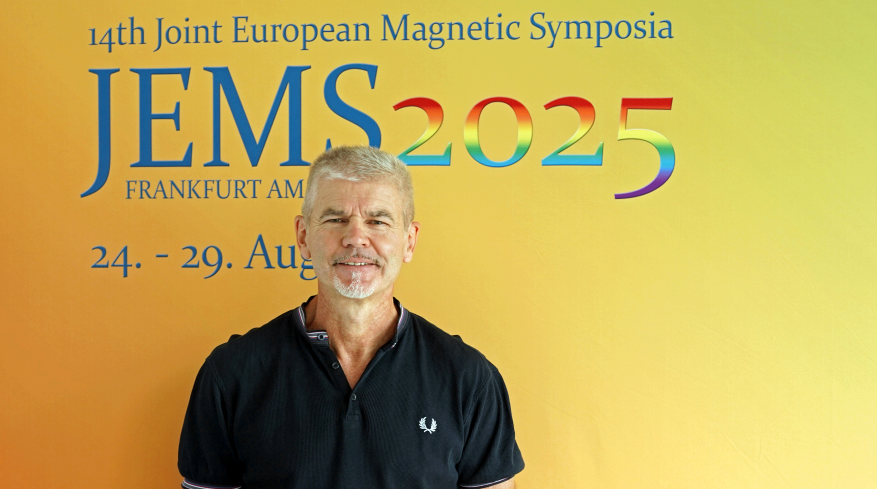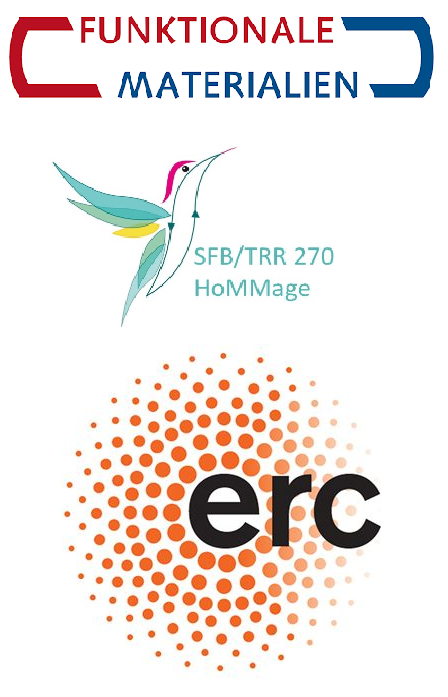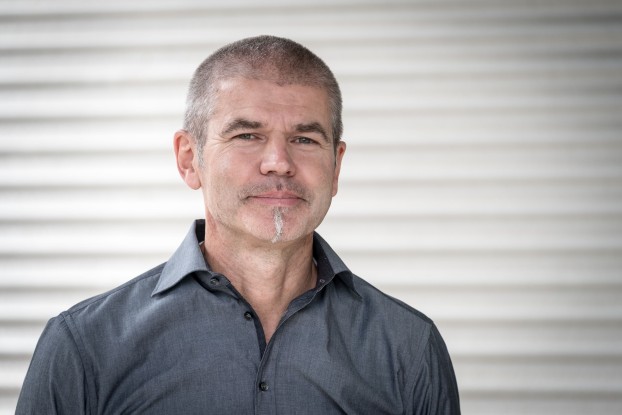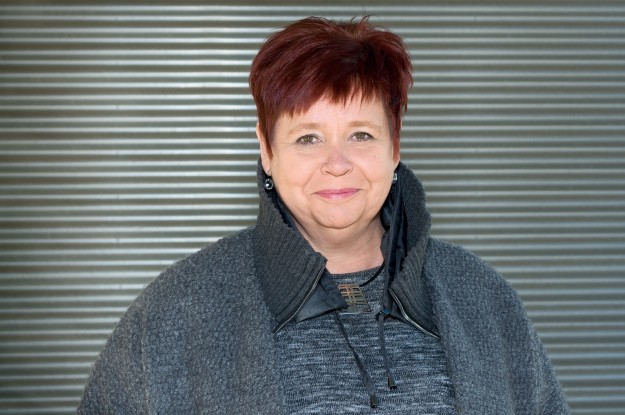“Magnets are key components for a successful energy transition”
Professor Oliver Gutfleisch on the upcoming JEMS 2025 magnetism conference
2025/08/22
This coming Sunday (24 August) marks the start of the six-day JEMS 2025, or Joint European Magnetic Symposia, the leading conference on magnetism in Europe. The event is being organised by the Functional Materials department at TU Darmstadt, headed by Professor Oliver Gutfleisch.

Dear Mr Gutfleisch, why is JEMS 2025 so important for magnet research?
It is the largest European conference on magnetism and magnetic materials. We are very proud to have prevailed against international competition and to have brought this key event, which we expect to attract 800 participants, to Hesse. Hosting the event demonstrates our international visibility and recognises our enormous efforts in the Collaborative Research Centre/Transregio ‘Magnetic Materials for Efficient Energy Conversion’.
Which key topics and symposia will be covered at JEMS 2025?
The enormous diversity of topics is reflected in 19 independent symposia. The topics of the plenary lectures are a good indication of this. Electron spin is relevant to all areas, for example in spintronics for neuromorphic data processing, which is inspired by the brain. Novel data-centric technologies are crucial for more powerful and energy-efficient computers, especially in the field of artificial intelligence (AI). Other examples include wireless magnetic micro- and nanorobots that can move around in the confined spaces of the human body using magnetic fields to administer drugs or perform other medical tasks, as well as new disruptive cooling technologies based on the magnetocaloric effect.
What role do magnets play in the energy transition?
Magnets are key components for a successful energy transition. As probably the least publicly discussed climate saviours, they are crucial for efficient energy conversion in electric motors and generators. Magnetic materials have been used for thousands of years. They range from the first use of meteoric iron and the invention of the compass in China to applications in today's information technology. Wind turbines, the largest and most efficient offshore turbines, have a standard output of 14 megawatts, but also require seven tons of permanent magnets. A total of 30 per cent by mass of these are rare earths. One kilogram of permanent magnets can be found in an electric vehicle and two grams in a mobile phone. We have been aware of the problem of China's monopoly on the supply of rare earths for at least 15 years, but global crises are now bringing it into daily discussion and the political consciousness.
Why is research into new magnetic materials so important? What are the biggest challenges associated with raw materials for magnets? How does research aim to reduce dependence on critical rare earths?
Research into new magnetic materials goes far beyond ‘our’ work in Darmstadt. The complex relationship between strategic, supply-critical metals and the transformation of the energy sector, mobility and electrification can be explained perfectly by the key role of rare earths in high-performance permanent magnets. We are working intensively to reduce the use of these critical metals, replace them entirely or recycle them. We are developing new magnetic materials, not only for electric motors and generators, but also for climate-friendly cooling. These ‘magnetic refrigerators’ are already available in Darmstadt supermarkets, developed by our TU Darmstadt spin-off Magnotherm GmbH, and in the future may also be used for cooling data centres or for the energy-efficient liquefaction of hydrogen.
How will the results of today's magnetic research influence our lives in the future?
Magnets are already everywhere in our daily lives, whether we realise it or not. Each of us uses around 100 magnets. New magnetic materials will change how we process and store ever-increasing amounts of data, how we treat diseases, how we store and efficiently convert energy, how we cool, calculate and build and automate robotics, and much more.
To close the circle on JEMS 2025: What results do you expect from the conference?
We want to send a message: At JEMS 2025, the scientific community should come together to reaffirm its commitment to sustainability, scientific integrity, and global cooperation in the face of the pressing crises confronting our planet. We are organising special events for young scientists, on diversity and an industry day with a job market. I expect many inspiring lectures and discussions on the above-mentioned topics of the future.
Finally, I would like to express my gratitude to the Strategic Alliance of Rhine-Main Universities (RMU). Thanks to the support of the RMU, we are able to use the conference rooms on the beautiful Westend Campus of Goethe University Frankfurt at a reasonable price for JEMS 2025. mih/dor, German interview translated by DeepL free web version with minor editorial changes



